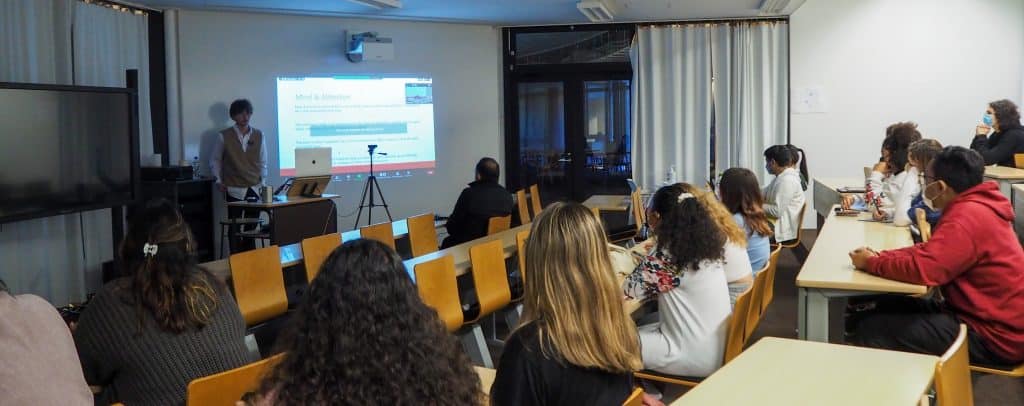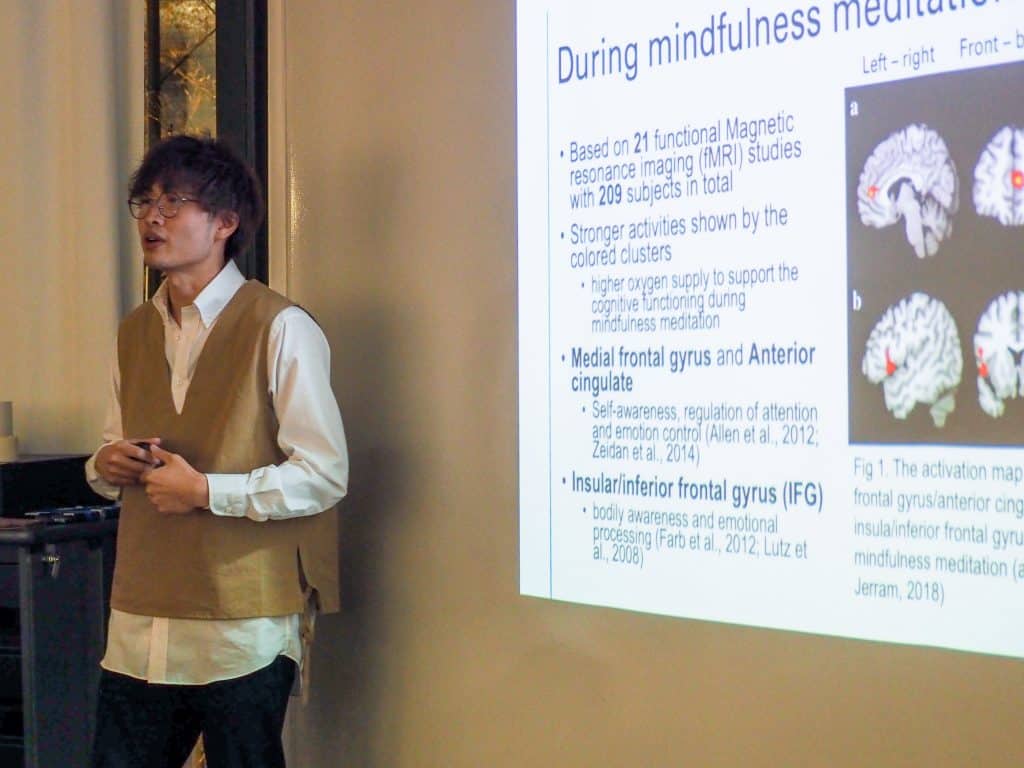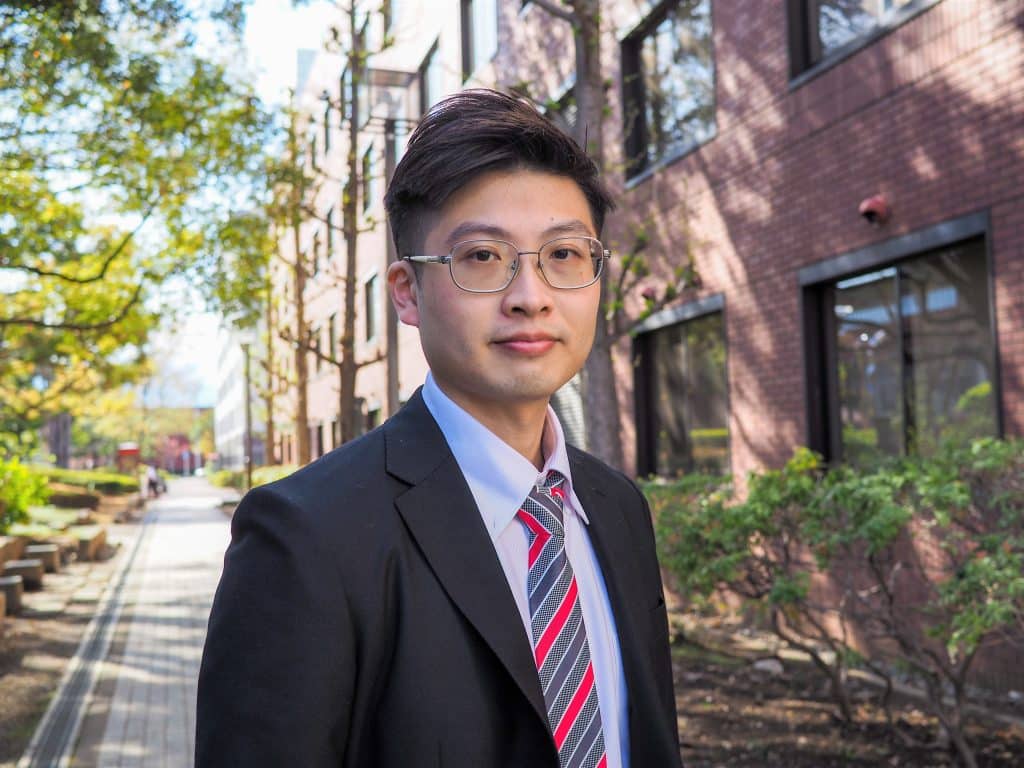Last month, iCLA held its first joint lecture with partner university, O.P. Jindal Global University in India.

Students, faculty members, and staff from both universities attended on Zoom and in person at iCLA and at the Jindal School of Liberal Arts and Humanities (JSLH).

The discussion of the lecture centered around the practical effect of meditation on improving creativity. Dr. Nick Lee (JSLH) introduced a theoretical framework that highlighted the neurocognitive mechanism of meditation while Dr. Terence Fong (iCLA) showed the neurological evidence of how practicing meditation can change our brain structurally and functionally.
Archaeologists believe that the idea of meditation can date back to 7000 years ago.
Although meditation used to be seen as a ritual to evoke spiritual experiences across different cultures and religions, modern psychologists, including speakers Dr. Lee and Dr. Fong, tend to see meditation as a method to improve cognitive control, stress management, mental stability, and creativity – the focus of the lecture.
Research studies have shown that practicing meditation facilitates more coherent intra-cortical communications across certain brain regions which would lead to a more efficient allocation of brain resources. In addition, regular meditation could slow down the baseline activities of our brain cells. Such changes offer an opportunity for our brain to connect seemingly unrelated ideas together instead of automatically linking thoughts and concepts in an ordinary way, and as a result, enhancing the
meditators’ creativity in multidisciplinary subjects, for instance, music, art, and literature.
“The changes brought by meditation to our brain can be carried over to our everyday life”, says Dr. Fong towards the end of the lecture, “We don’t have to sit in front of a desk and keep thinking about how to be more creative, more “Aha” moments will come into your mind spontaneously.”


